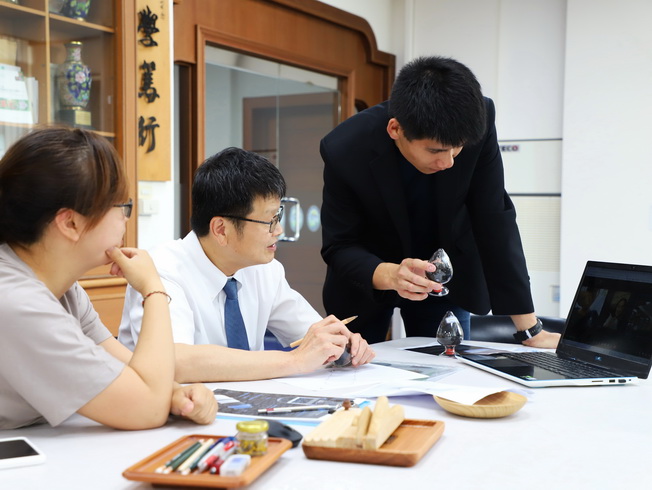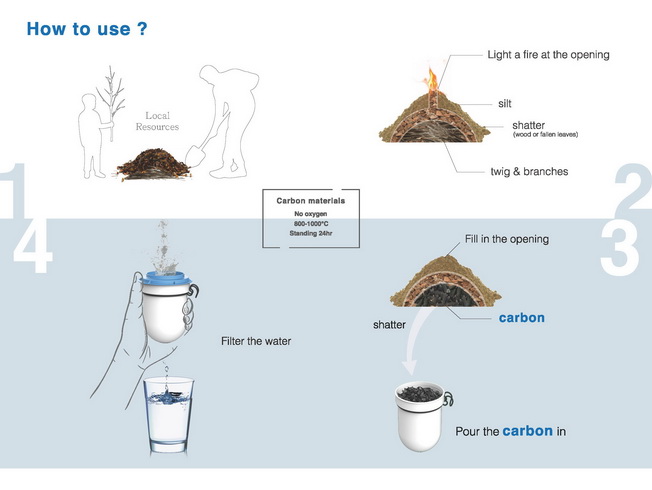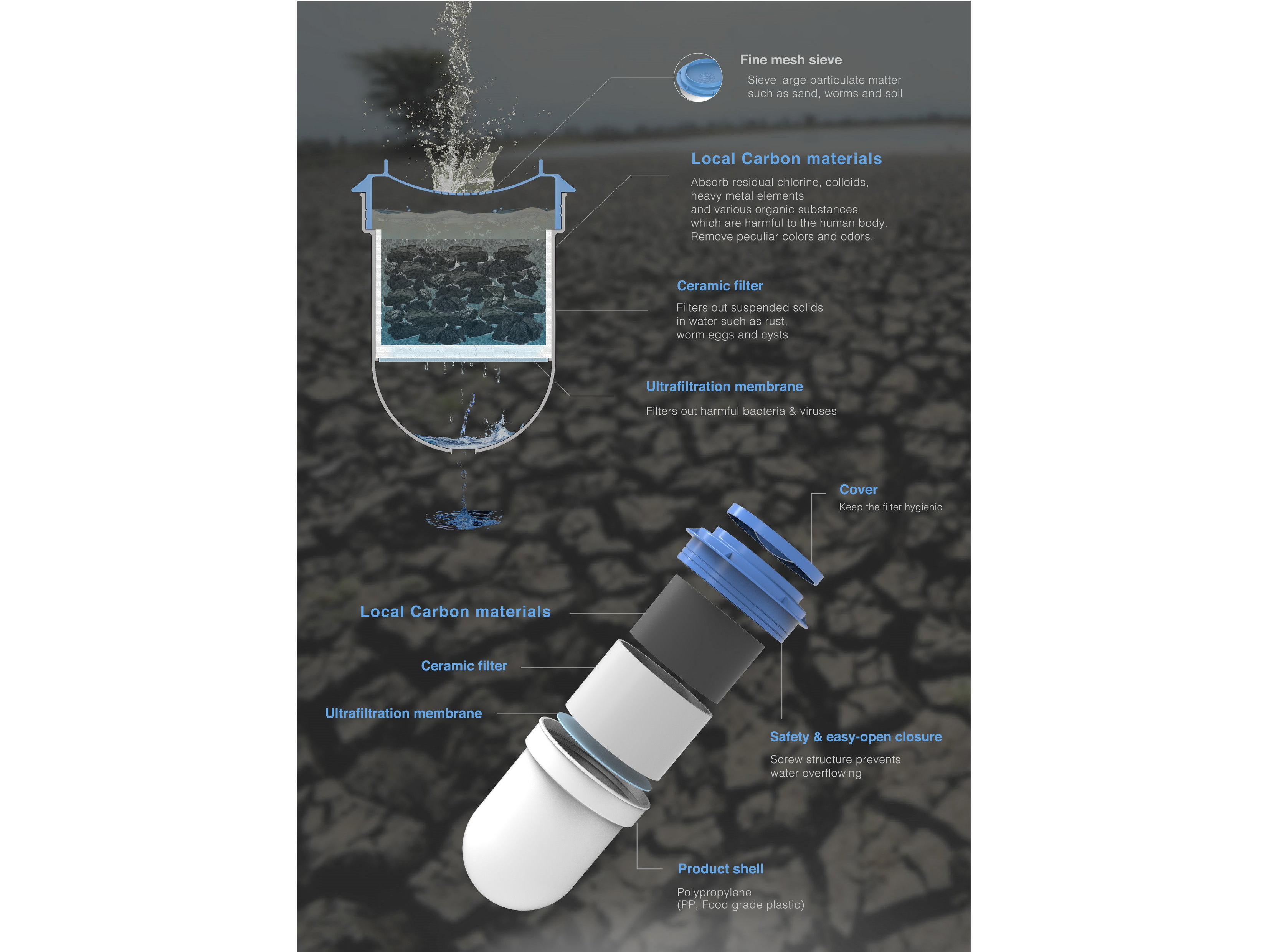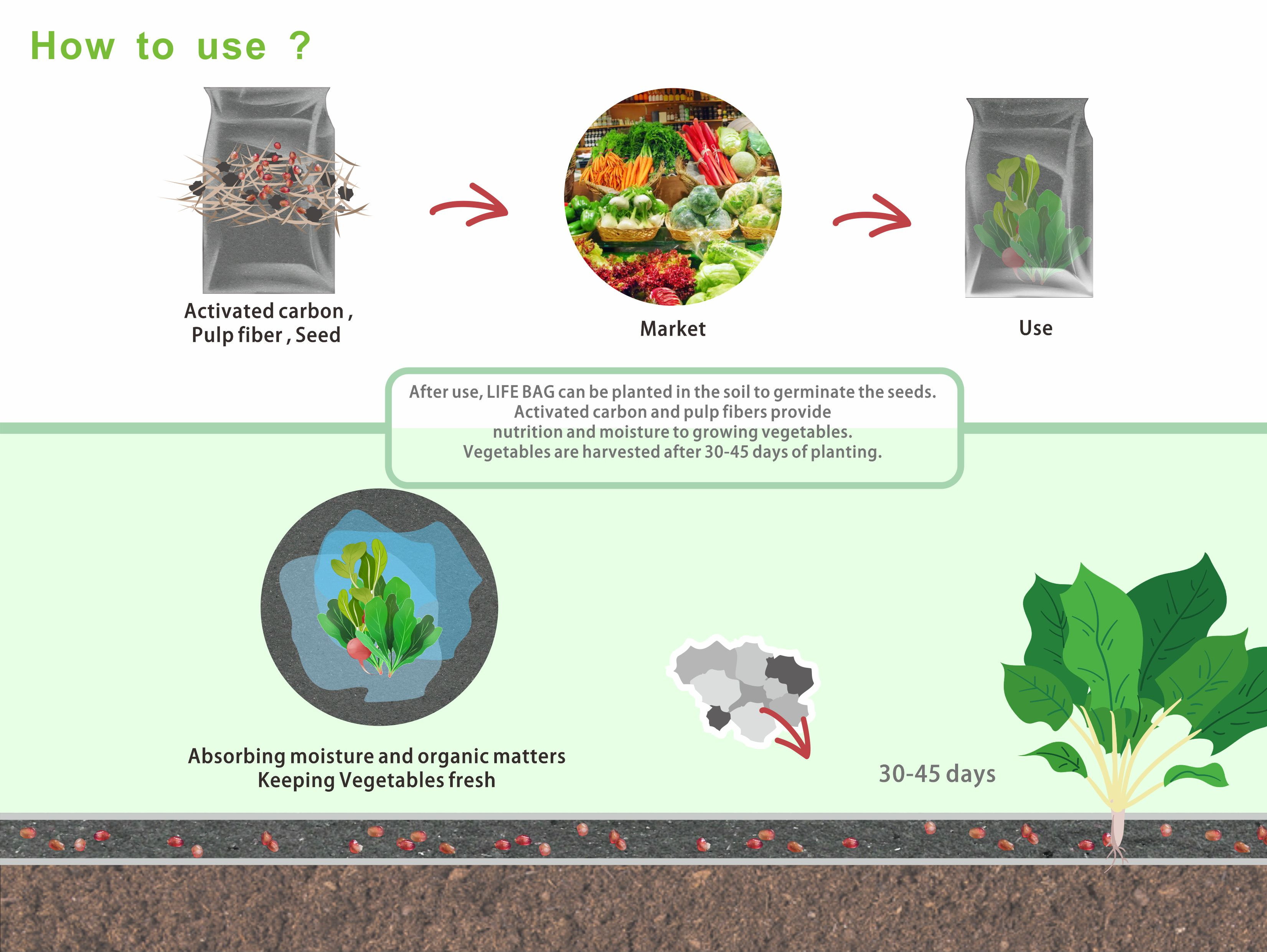| |
 |
News |
 |
Browsing: 1450 times

|
Date:2023-04-20
Bracket:2023 NCYU NEWS
Department:ncyu
|
 NCYU Department of Wood Based Materials and Design’s Work Nominated for the German Red Dot Design Award: Designed to Make Drinking Water More Accessible in Poorer Areas and Promote Sustainable Resources
NCYU Department of Wood Based Materials and Design’s Work Nominated for the German Red Dot Design Award: Designed to Make Drinking Water More Accessible in Poorer Areas and Promote Sustainable Resources
The Environmental Functional Materials Research Lab team was led by President Han Chien Lin, professor of the Department of Wood Materials and Design, National Chiayi University. The team consists of Ph.D. Candidate Xie Wan-Ting, undergraduate alumni Cai Yu-Jie, Tang Chu-Min, and Lin Yu-Ting. They participated in the Red Dot Award: Design Concept, hosted by the renowned Design Zentrum Nordrhein Westfalen in Germany. Their works, “SIMPLE HOPE” and “Life BAG,” were nominated for the 2023 German Red Dot Design Award in the categories of Safety and Protection and Sustainability respectively. They hope to make the Earth’s environmental resources sustainable and reduce the spread of diseases by making it easier to for people in poorer countries obtain clean drinking water.
Established in 1995, the Red Dot Design Award is one of the four major design competitions in the world. As the climate issue is one of the greatest common denominators among global powers, achieving net-zero emissions has become a shared responsibility of all mankind. Energy transition is not just a slogan. While Taiwan’s water consumption is facing a severe test due to climate and environmental changes in recent years, a sip of clean water is often beyond reach for the people in Africa.
Designed by the NCYU team, “SIMPLE HOPE” utilizes activated carbon to adsorb substances in terms of biodiversity. After impurities are absorbed to saturation levels, it can be replaced to produce a filtering effect. Users can quickly collect materials such as wood and leaves from the natural surroundings for a simple carbon production process. They can easily obtain activated carbon in an oxygen-free environment at temperatures between 800 and 1,000 degrees Celsius, and replace the filter materials at any time to access clean water resources.
Over 5 trillion plastic bags are produced worldwide each year, and many countries have banned or restricted the use of plastic. Nevertheless, plastic bags remain the most common packaging material on the market. The NCYU team created “Life BAG” with activated carbon, pulp fibers, and plant seeds, fully utilizing the characteristic of activated carbon to absorb water and organic matter. The bag can keep vegetables fresh and extend their shelf life. After use, “Life BAG” can be planted in the soil so that the activated carbon and pulp fibers can be reused to provide nutrients and water for seed germination. Fresh vegetables can be harvested in 30-45 days. It not only provides food but also helps reduce plastic pollution in an eco-friendly way.
According to President Han Chien Lin, advisor of the team, NCYU has been nominated for the German Red Dot Award: Design Concept for two years in a row. In recent years, the Department of Wood Based Materials and Design has undergone enormous change, from producing wood products, to effectively using materials, and then to incorporating design to achieve the added value of functional use. In terms of cultivating talents in the Department of Wood Based Materials and Design, he expects students to acquaint and familiarize themselves with the value of using wood materials, and principles and methods of making products accessible. Through scientific research, timely and location-based design and applications can be adopted to create more value in wood materials. Just like the concept of how materials and resources are productized, the aim is to integrate design aesthetics and allow wood to be used in daily life.
|



|
 |

|
 |
|
 |
 |
|


 ][
][